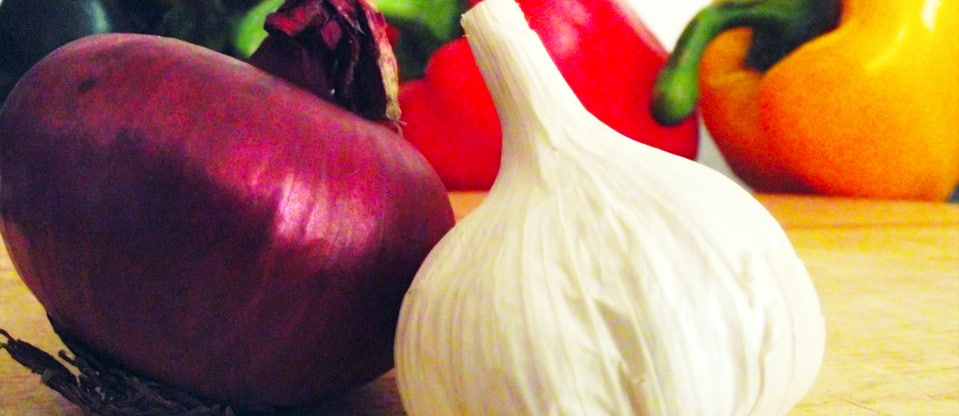Iron is a double-edged sword. If we don’t absorb enough we risk anemia, but if we absorb too much we may be increasing our risk of colorectal cancer, heart disease, infection, neurodegenerative disorders, and inflammatory conditions. See my 3-min. NutritionFacts.org video Risk Associated With Iron Supplements. Other conditions that have been associated with high iron intake include Alzheimer’s, Parkinson’s, arthritis, and diabetes.
Because the human body has no mechanism to rid itself of excess iron, we evolved to tightly regulate the absorption of it. If our iron stores are low our intestines boost the absorption of iron, and if our iron stores are topped off our intestines block the absorption of iron to maintain us at the sweet spot. However, this only works with the primary source of iron in the human diet, the iron found in plant foods. Our digestive system can’t regulate the iron in ingested blood (“heme” iron) as effectively. The iron in animal foods can just zip right through our intestinal barrier, even if we already have too much. We just don’t have as much control.
Iron overload may be one of the reasons meat consumption has been tied to breast cancer risk. Iron is a pro-oxidant and can induce oxidative stress and DNA damage. Quoting from one of the studies I feature in the video, “A high intake of iron in developed societies may, over time, lead to a physiologic state of iron overload in postmenopausal women, who are no longer losing blood every month. Iron overload favors the production of free radicals, fat oxidation, DNA damage, and may contribute to breast carcinogenesis independently or by potentiating the effects of other carcinogens.”
For more on breast cancer, some good videos to start with include Relieving Yourself of Excess Estrogen, Flax and Fecal Flora, and Broccoli Versus Breast Cancer Stem Cells.
Only people with a confirmed diagnosis of iron-deficiency anemia should consider supplementing their iron intake, and even then it can be risky. Another recent study I explore found a significant increase in oxidative stress within the bodies of women on iron supplements. Therefore, before going on iron supplements I would suggest talking to your physician about first trying to treat it through diet alone. This means eating lots of healthy iron-rich foods like chickpeas and pumpkin seeds while consuming vitamin C-rich foods, such as citrus, tropical fruits, broccoli, and bell peppers. The vitamin C-rich foods improve plant iron absorption, which is why they should be consumed at the same meal. Tea and coffee drinking, on the other hand, should be avoided with your meals since that can impair iron absorption.
For more on nutrient bioavailability, see my videos Take Vitamin D Supplements With Meals, Calcium Absorption: Soy Milk Versus Cow Milk, and Raw Food Nutrient Absorption.
The whole grain phytonutrient, phytic acid (phytate), partially inhibits mineral absorption, but has a wide range of health-promoting properties such as anti-cancer activity. By concurrently eating mineral absorption enhancers, such as garlic and onions, one can get the best of both worlds by improving the bioavailability of iron and zinc in plant foods. Watch New Mineral Absorption Enhancers Found. Another example of nutrient synergy is the reaction between black pepper and the spice turmeric as described in Garden Variety Anti-Inflammation.
For more on the food-as-a-package-deal concept, see Plant Protein Is Preferable, Plant vs. Cow Calcium, and Safest Source of B12.
–Michael Greger, M.D.
